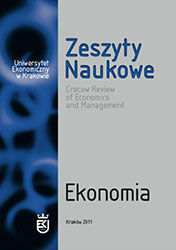Europejskie Ugrupowanie Współpracy Terytorialnej – nowy podmiot administrujący
European Grouping of Territorial Cooperation (EGTC) New Public Authorities
Author(s): Aldona PiotrowskaSubject(s): Law, Constitution, Jurisprudence
Published by: Wydawnictwo Uniwersytetu Ekonomicznego w Krakowie
Keywords: territorial cooperation; public tasks; public administration; public administration body
Summary/Abstract: Regulation (EC) No 1082/2006 of the European Parliament and of the Council of 5 July 2006 on the European grouping of territorial cooperation (EGTC) provides a new instrument for cross-border cooperation in the European Union–EGTC, which has legal character. The objective of the EGTC is to reduce the significant difficulties encountered by Member States and, in particular, by regional and local authorities in implementing and managing territorial cooperation. The objective of an EGTC shall be to facilitate and promote cross-border, transnational and/or interregional cooperation between its members, with the exclusive aim of strengthening economic and social cohesion. An association may have as its members Member States, regional authorities, local authorities or bodies governed by public law according to the second subparagraph of Article 1(9) of Directive 2004/18/EC of the European Parliament and of the Council of 31 March 2004 on the coordination of procedures for the award of public works contracts, public supply contracts and public service contracts. Associations consisting of bodies belonging to one or more of these categories may also be members, so an EGTC can be homogeneous or non-homogeneous. An EGTC shall be made up of members located on the territory of at least two Member States. An EGTC shall act in accordance with the tasks given to it, which shall be limited to the facilitation and promotion of territorial cooperation to strengthen economic and social cohesion and be determined by its members on the basis that they all fall within the competence of every member under its national law. The tasks all fall within the competence of every member under its national legal means, which in the case of the grouping of non-homogeneous can act only the task common for all members of grouping, and in addition the tasks entrusted by the public authorities to other than EGTC members.
Journal: Zeszyty Naukowe Uniwersytetu Ekonomicznego w Krakowie
- Issue Year: 870/2011
- Issue No: 02
- Page Range: 187-205
- Page Count: 19
- Language: Polish

